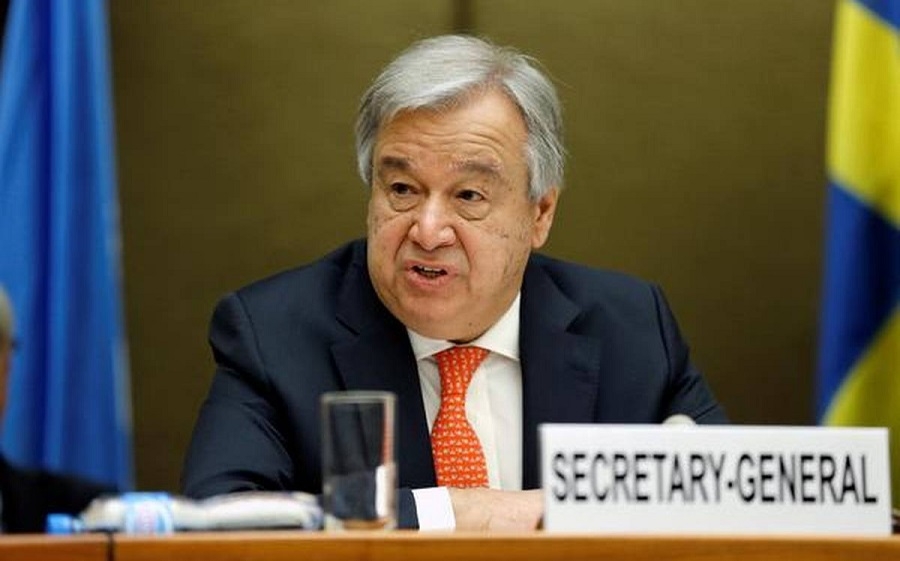Geopolitical tensions at their highest level this century: UN
| Date :08-Jan-2020 |

By Yoshita Singh :
UN chief amid US-Iran tensions, saying such conflicts are at their highest level this century and nations are taking unpredicted decisions that have a profound risk of miscalculation
UNITED NATIONS, AMID escalating US-Iran tensions over the killing of Iran’s most influential general Qassim Suleimani, UN chief has voiced concern over the geopolitical tensions, saying such conflicts are at their highest level this century and nations are taking unpredicted decisions that have a profound risk of miscalculation. “The New Year has begun with our world in turmoil. We are living in dangerous times,” UN Secretary General Antonio Guterres told reporters here on Monday. “Geopolitical tensions are at their highest level this century. And this turbulence is escalating,” he said.
Warning that even nuclear non-proliferation can no longer be taken for granted, he said the ‘cauldron of tensions’ globally is leading more and more countries to take “unpredicted decisions with unpredictable consequences and a profound risk of miscalculation”. Tensions are escalating between the US and Iran after Maj Gen Qassim Suleimani, who led the powerful Quds Force of the Islamic Revolutionary Guards Corps, was killed in an American drone strike in Baghdad on Friday.
The strike was authorised by US President Donald Trump. Iran has vowed to avenge the killing of the elite Quds Force commander, and on Sunday it indicated that it would no longer be bound by the restrictions on its nuclear programme, outlined in the 2015 deal known as the Joint Comprehensive Plan of Action, or JCPOA. The deal was debated in the Security Council just last month. On Sunday, the Iraqi parliament also passed a non-binding resolution calling for US troops to leave the country, in a clear response to the killing of the Iranian general on their soil. In response, Trump has threatened Iraq with sanctions if forced to withdraw its forces, and also threatened on Twitter, to destroy multiple sites of ‘cultural’ significance within Iran, if there are reprisal attacks against Americans.
China’s Ambassador to the UN Zhang Jun told reporters that Beijing is following the situation very closely and the pressing task at the moment is to prevent the situation from further escalating and running out of control. Regarding the US pushing for a press statement on the attack on the US Embassy in Iraq, Zhang said China does not accept the US accusation. He said China firmly supports protection of the safety of foreign missions in accordance with the international law but the US unilateral military action has led to drastic changes in regional situation. The Chinese envoy added that action taken by the Security Council should reflect latest developments of the situation and help prevent escalation of tensions. The US Mission to the UN blamed China and Russia for blocking a UN Security Council statement condemning the December 31 attack on the US embassy in Baghdad.
“Indeed, not allowing the United Nations Security Council to issue the most basic of statements underscoring the inviolability of diplomatic and consular premises once again calls the Council’s credibility into question. Such expressions of support should not be controversial or warrant courage,” it said. Russia’s UN Ambassador Vassily Nebenzia told reporters that Moscow condemns strongly the attack on the American Embassy in Baghdad but the UNSC statement that was ‘nearly ready’ was not taking into account subsequent actions like the attack on the Baghdad airport that targeted Suleimani. “We now have to talk about territorial integrity, about sovereignty of Iraq, about the need to de-secalate in the regions and prevent developments going down the drain, in the direction of a major conflict.” Guterres told reporters that amid these global tensions, there are trade and technological conflicts that fracture world markets, undermine growth and widen inequalities.